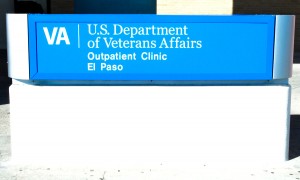More younger military veterans are committing suicide despite available VA programs
|
EL PASO — As he sits at a faded-black dining room table, a man in his mid-twenties stares at the front door, his reflection visible from the dirty tabletop where a brown paper bag holding his lunch rests. His eyes dart focusing from one end of the room to the other as if he’s never been there before, sitting upright, inspecting the room. He specifically chose the seat with the best view of the front door, which he never stops looking at for more than a moment, because he says he is hardwired that way. He seems uneasy even though he has been here hundreds, if not, thousands of times, only four doors down from his childhood home. Esteban, 26, served four years in the United States Marine Corps and did two tours in Iraq.
